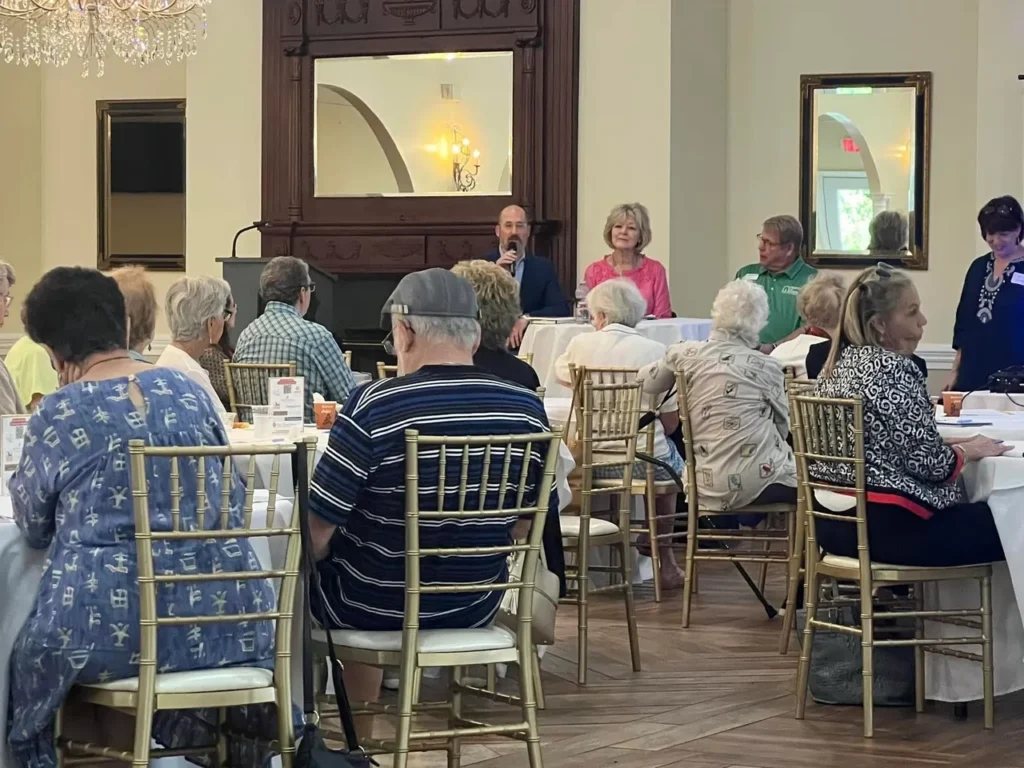Memory Care Covington
The Role of Structured Routines in Memory Care: Creating Calm Through Consistency

For individuals living with memory loss -whether due to Alzheimer’s disease, vascular dementia, or other cognitive impairments -the world can often feel unpredictable, confusing, and overwhelming. In memory care settings, the simple act of establishing a structured routine can have a profoundly positive impact.
At Magnolia Memory Residence, we believe that structure is more than just scheduling –it’s a therapeutic approach that nurtures safety, comfort, and dignity. This article explores how predictable daily routines can enhance well-being, reduce stress, and improve the quality of life for residents with memory challenges.
Why Structure Matters in Memory Care
Our brains are wired to find comfort in the familiar. When that sense of familiarity begins to fade -whether through disorientation, memory loss, or difficulty with time perception -daily life becomes more stressful. Structured routines offer a reliable framework that:
- Reduces confusion and anxiety
- Promotes independence
- Enhances memory recall
- Fosters emotional security
- Builds trust between residents and caregivers
In memory care, structure becomes a tool for connection. It helps residents navigate their day with confidence, even if they can’t remember the details of why or how.
What Does a Structured Routine Look Like?
At its core, a structured routine isn’t about rigid schedules or control-it’s about creating a rhythm that supports each resident’s physical, emotional, and cognitive needs.
Morning Routine
- Consistent wake-up time
- Hygiene and grooming assistance
- Nutritious breakfast
- Morning mental stimulation (puzzles, music, news discussions)
This gentle start helps establish a sense of orientation and sets a positive tone for the day.
Midday Activities
- Therapeutic group activities (art, music, or reminiscence therapy)
- Guided walks or light exercise
- Lunch served at the same time and in familiar surroundings
Engaging in structured group activities mid-morning can stimulate cognition and reduce restlessness.
Afternoon Calm
- Quiet time or individual hobbies (reading, crafts, sensory activities)
- Visits from family or pet therapy sessions
- A light snack to maintain energy and mood
Afternoons are often when “sundowning” symptoms -agitation or confusion -can appear, so calm and routine are especially important during this period.
Evening Wind-Down
- Dinner with peers at a familiar dining table
- Soft music, calming lighting
- Personal hygiene and bedtime preparation
- Bedtime rituals to ease the transition to sleep
Evening routines help reduce anxiety, especially for residents with sleep disturbances or nighttime disorientation.
Benefits of Predictable Schedules in Memory Care
Supports Cognitive Function
Even as short-term memory declines, long-term memory and procedural memory (how to do things) often remain. Structured routines tap into this, reinforcing familiarity and supporting residents in completing tasks more independently.
Promotes Emotional Stability
Sudden changes or inconsistencies can be upsetting. Predictability helps minimize behavioral challenges like agitation, aggression, or withdrawal. Residents feel more secure when they know what to expect.
Strengthens Relationships
When caregivers follow consistent routines, residents begin to associate faces and voices with positive, predictable experiences. This builds trust and strengthens emotional connections, even when verbal communication becomes difficult.
Encourages Independence
By repeating tasks in the same order and format each day, residents are often able to retain the ability to perform parts of their daily routines independently- such as brushing their hair or dressing with minimal assistance.
Enhances Overall Well-Being
Consistent sleep schedules, regular meals, and time for activity and rest all contribute to better physical health. A well-structured day leads to better sleep patterns, improved appetite, and a reduction in disruptive behaviors.
Tailoring Routines to the Individual
While structure is essential, flexibility within routine is just as important. At Magnolia Memory Residence, we tailor routines based on each resident’s personal history, habits, and preferences. We consider:
- What time of day they’re most alert
- Their past daily rhythms (e.g., early risers vs. night owls)
- Cultural or religious rituals
- Former careers or hobbies (e.g., former teachers may enjoy reading aloud or leading group games)
Even within a structured day, giving residents choice—such as selecting their outfit or meal -adds a vital layer of autonomy and respect.
From Routine to Ritual: Creating Moments of Meaning
Not every routine needs to be clinical. Simple rituals woven into the day can spark joy and emotional connection:
- Starting the day with a favorite hymn or prayer
- Tea time with familiar china
- Watching birds at the garden feeder
- Listening to classic radio shows after lunch
These comforting rituals become anchors, helping residents feel connected to their identities and history.
Helping Families Understand the Power of Routine
Families may sometimes worry that routine could feel limiting or monotonous. In reality, a well-crafted routine creates freedom within familiarity. It empowers residents to live with greater comfort and less fear.
When families are included in routines—whether during visits, mealtimes, or shared activities -they reinforce continuity and strengthen bonds.
Conclusion: Predictability with Purpose
In memory care, routines are more than a means to manage time—they’re a lifeline for residents navigating a world that often feels unfamiliar. They offer not just order, but comfort. Not just consistency, but compassion.
At Magnolia Memory Residence, we take pride in crafting structured yet flexible days that honor each resident’s dignity, reduce distress, and cultivate joy. By embedding care into every routine, we create a stable and nurturing environment where our residents can truly thrive.
Curious to see how daily routines support our memory care residents?
We invite you to visit Magnolia Memory Residence and experience firsthand how structure becomes care and care becomes connection.